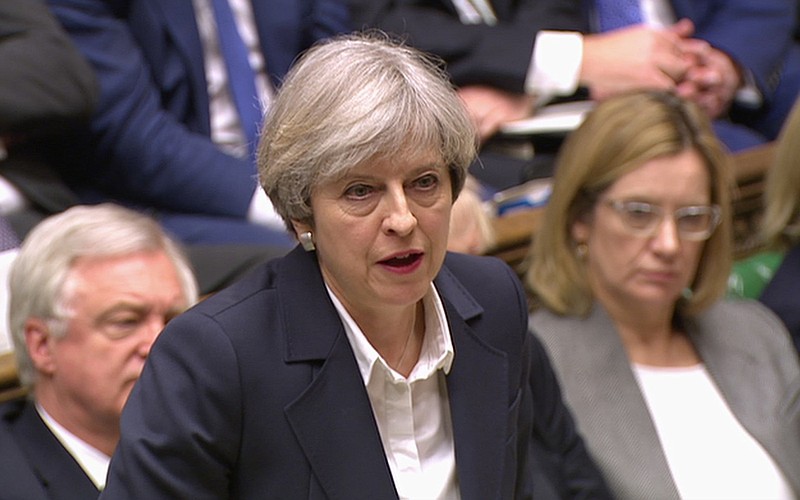LONDON (AP) - British Prime Minister Theresa May says Britain's exit from the European Union is an opportunity to build an "independent, self-governing, global Britain." As Britain officially starts the two-year leaving process, here's a look at some of the challenges ahead:
WHAT'S AT STAKE?
Negotiations will determine future relations between Britain's estimated 65 million people and the roughly 435 million people living in the 27 other EU countries. Key questions include whether they will be able to live, work and study in each other's countries and how freely goods and services can be transported between Britain and the EU.
MONEY, MONEY, MONEY
The EU says Britain can't leave without settling its bill, paying up for the U.K.'s share of staff pensions and projects it has already agreed to fund. European Commission President Jean-Claude Juncker has put the figure at around 50 billion euros ($63 billion). Britain agrees it will have to pay something, but is sure to quibble over how much.
WHAT DO WE TALK ABOUT FIRST?
Substantive talks are unlikely to start until May at the earliest - after an April 29 summit of 27 EU leaders to settle their negotiating stance, and after France holds a May 7 presidential election. EU officials insist the divorce terms must be settled before talks on a new relationship can begin. Britain hopes the two tracks - divorce terms and future relationship - can run in parallel.
WHAT ARE THE RED LINES?
The EU says it will not compromise on its core "four freedoms": free movement of goods, capital, services and workers. Britain insists that it must regain the right to control immigration and end free movement from other EU countries into Britain. May says Britain will leave the EU's single market in goods and services and its tariff-free customs union, but nonetheless wants "frictionless" free trade. It is hard to see how the U.K. can impose immigration restrictions without facing some trade barriers.
DEAL OR NO DEAL?
Officials on both sides hope by 2019 either to have a deal, or an agreement to keep talking during a transitional period. But there is a third possibility, in which Britain crashes out of the EU without a deal. The final deal will have to be approved by both the British and European parliaments - and neither is guaranteed.
